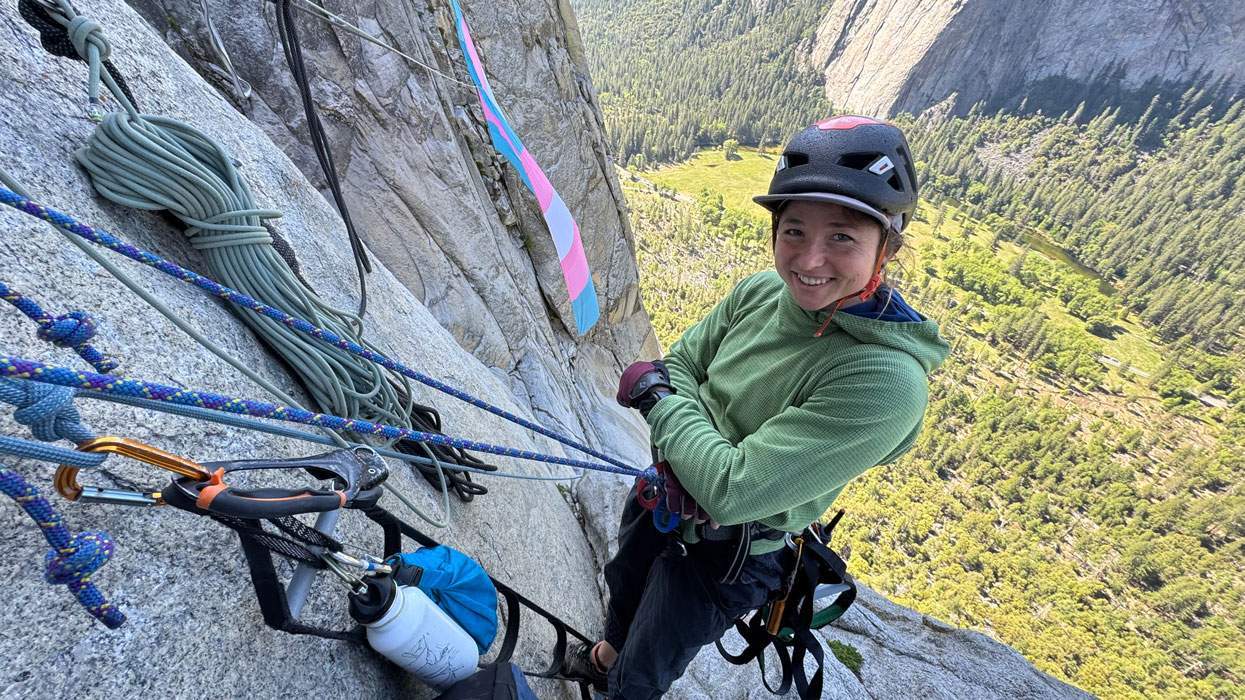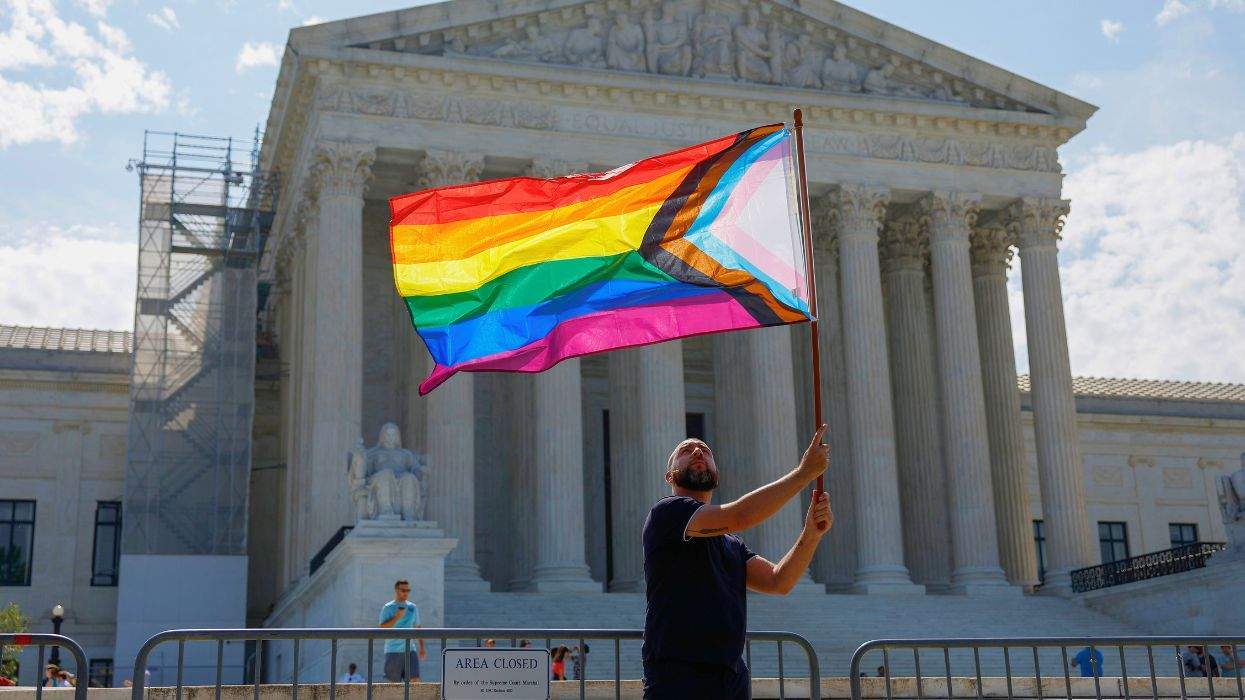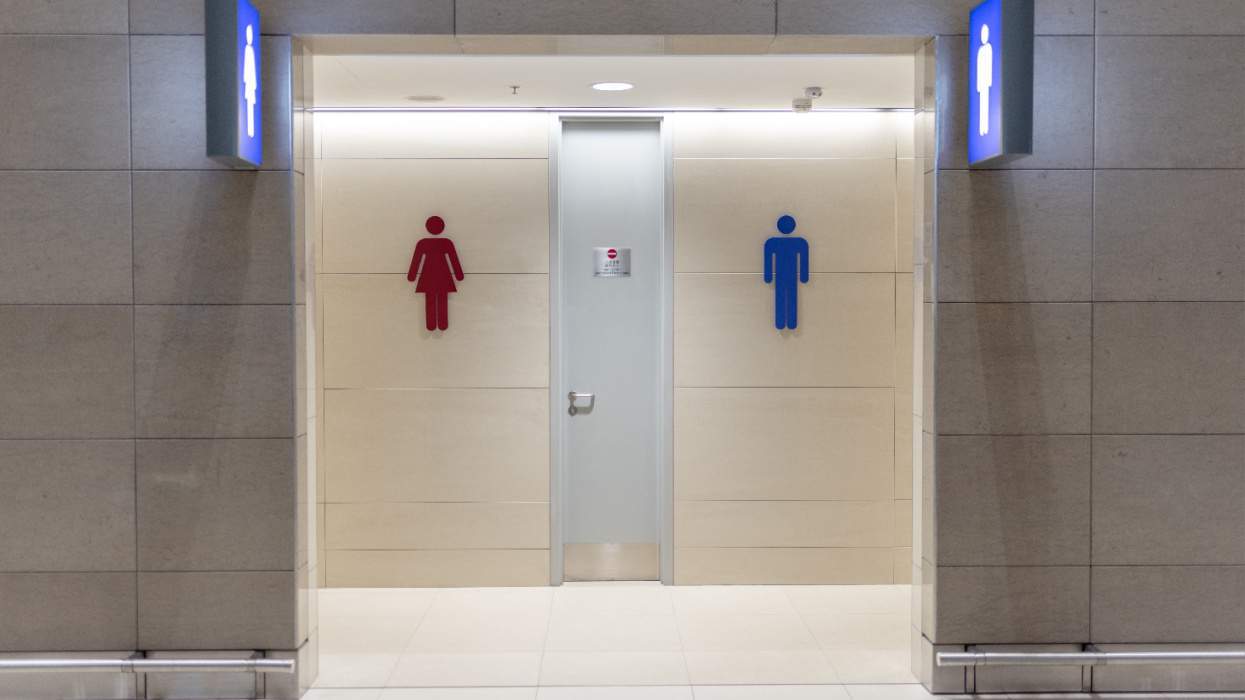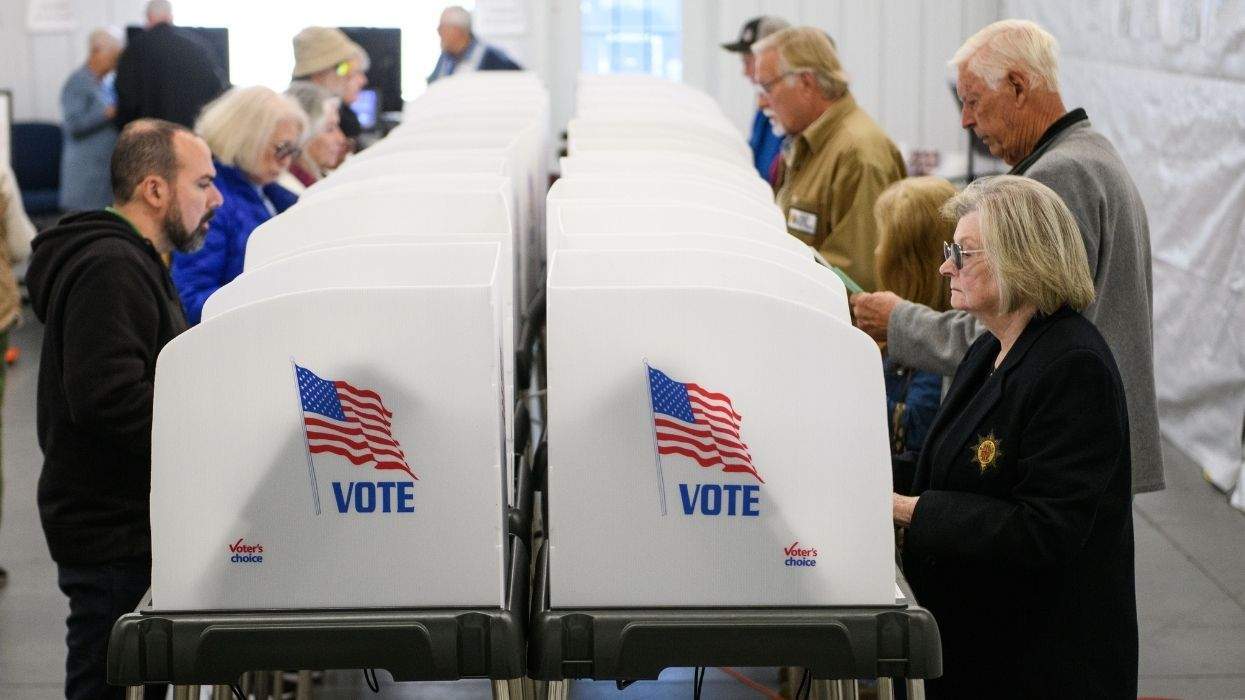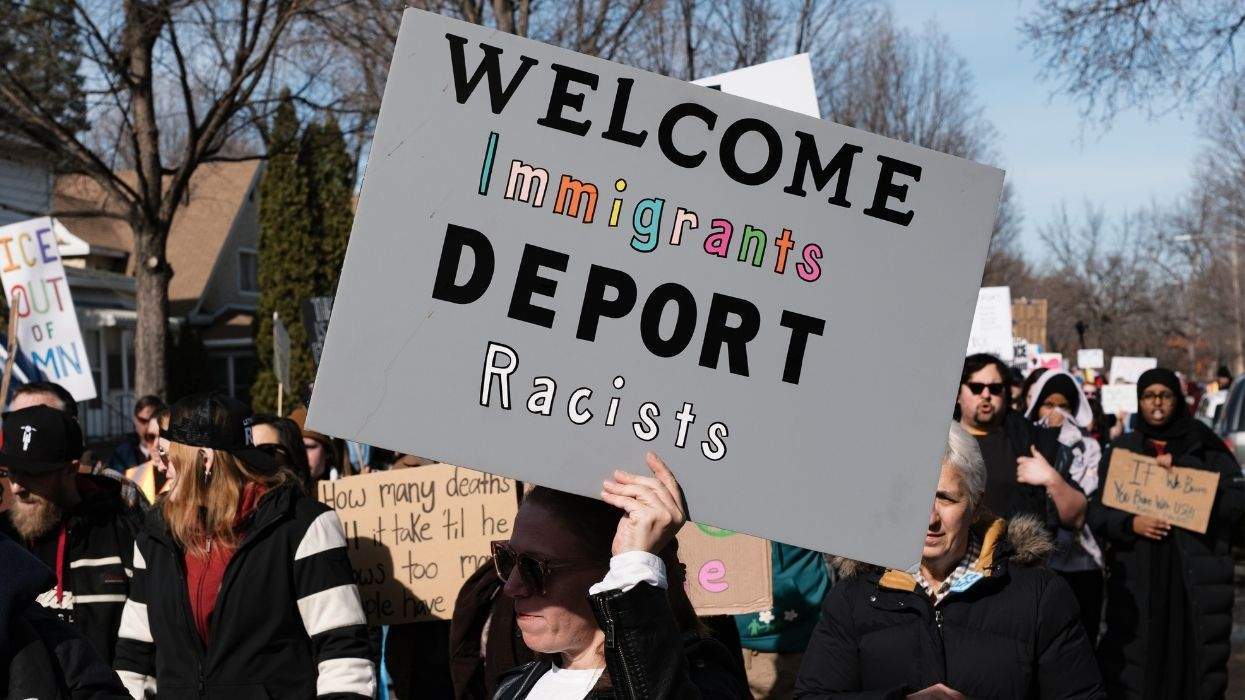Three of us squeezed tight on a motorbike tearing through the hectic noontime traffic in Kampala. The boda-boda driver wore no helmet but weaved around the cars as if he did. I sat in the back, fingers clenched, clutching the tail of the bike and hoping not to fall off. The man between the driver and me was in constant steady conversation with him. He wanted to know if we were safe.
Not safe in the sense of crashing into oncoming traffic, but safe as in whether this was a neighborhood that threatened LGBT Ugandans. Ronald does this everywhere he goes. Ronald (not his real name) is a LGBT activist in Uganda, one of the world's most antigay nations. He is also an editor on the team that recently put out the country's first LGBT magazine.
On December 22, Bombastic came out after a year of work, after threats of violence, police detention, even death. More than 15,000 copies have been delivered, and 30,000 online copies have been downloaded, according to Bombastic staff.
Kasha Jacqueline Nabagesera, Bombastic's editor, said the magazine's goal was dispelling myths and allowing LGBT Ugandans to tell their own stories. "We are sharing our stories in the hope that we can change social attitudes," she said. "The people we are trying to reach out to are the people who are threatening to burn our houses and beat us."
Gay rights groups report that at least 500,000 gay people live in Uganda, according to BBC. Uganda is the size of Oregon and has a population of 31 million people. Like many former British African colonies, it has long had antigay laws. The film God Loves Uganda, by Roger Ross Williams, documents the successful efforts by American evangelists to export their brand of vitriolic homophobia to this heavily Christian nation. Ugandan preachers carrying Bibles bellow at passing strangers on busy streets, while American preachers lead constant crusades on television and in sold-out stadiums. Most Ugandans I spoke with only knew about homosexuality through what they learned through religious leaders. They were embarrassed when the topic came up.
Many LGBT Ugandans, especially those in the lower economic strata, live in fear. Uganda is an environment where tabloids regularly expose people perceived to be LGBT or supporting LGBT efforts. In a populous country with few jobs, where education is required and expensive, and where family and clan ties mean everything, being out can mean lost opportunities. In some cases, being outed here can mean death. For the LGBT rights activist David Kato, it meant his assassination in 2011.
Still, some queer Ugandans chafe at what they see as a Western preoccupation on Ugandan homophobia. Why not talk about the daily lives and the successes of everyday Ugandans in combating it?
Nabagesera, while in Iceland for an Amnesty International event in 2013, had an idea to create a magazine to combat Uganda's homophobic media. Not all Ugandans have access to the Internet, so it was important for the magazine to be in print. She and the staff chose the name Bombastic from the title of a popular song, "Boombastic," by the reggae musician Shaggy.
"We didn't want a name about the persecution," says Ambrose Barigye, in a restaurant in Ntinda, a district of Kampala. Barigye is a Ugandan human rights activist and part of Bombastic's team of 128, which includes a small group of eight staffers and a larger group of distributors. "We wanted to say, bombastic! Something bombarding you. You want to let it out. You can no longer hide it anymore."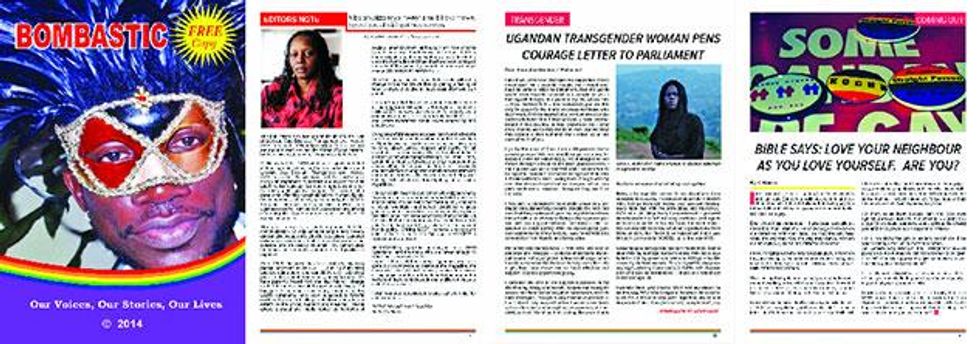
Barigye was responsible for gathering volunteers to distribute the magazines in the field. It was important, he said, to pick the right people, the ones with zeal, the ones willing to risk lawsuits and threats as they dropped off stacks of magazines at grocery stores and public areas. The team created a hotline, appointed team leaders, used social media to coordinate, and scouted locations to determine which were safe and which weren't.
These efforts led to threats against Nabagesera by religious leaders and Simon Lokodo, the Ugandan Minister of Ethics and Integrity. According to Ugandan law, publication of material with homosexual content in Uganda is punishable by up to seven years in prison.
"There were already burned issues of the journal before our eyes, and in the north of Uganda, the police wanted to arrest us--but we got away," Moses Kimbugwe, also responsible for distribution of Bombastic, told Der Spiegel.
Barigye proudly held a copy of Bombastic in his hand. Inside the 76-page magazine are personal stories about coming out, stories of violence at the hands of family members, op-eds, articles on religion and HIV/AIDS, poetry, fiction, and illustrations. Barigye flipped through the pages to a picture of him at Uganda's 2014 Pride parade, the country's first since the invalidation of the Anti-Homosexuality Act in August. A revised version of the proposed legislation is currently in the works.
At such a crucial time, Barigye, Nabagesera, and others at Bombastic hope to have another issue out soon and are currently trying to find more funding. "Our long term goal is to make sure every household has a copy," Barigye said. "People are dying for Bombastic magazine. We have a plan for getting more resources and printing more copies, to ensure everyone gets one."
One person willing to go on the record in Bombastic was Jay Mulucha, a transgender man and basketball player fired from his job as a referee. Mulucha, who writes in the magazine with the byline "Jay Muk" about being outed on radio in his hometown, knows all too well the power of words.
"I felt that I wanted my voice to be heard," he said. "Sometimes there are a lot of things are said about us, and we never have time to talk to people to correct them, but this Bombastic magazine, it's going to be there, it's now on the Internet. People are out reading this story about our experiences. It's very difficult to tell my story, but I feel it's best to reach out so people can hear about the experiences, the challenges, maybe the happy moments that people go through."
Mulucha spoke in a LGBT-friendly cafe, one he had scouted before. He spoke of how, in the same way a point guard has to have eyes on every player on the court, he must keep an eye on her surroundings, reading for signs for danger. Still, he hopes being open can break the barriers surrounding him.
"I understand about being in the closet, but I want people to know what is happening," he said. "If I stay in the closet, nothing is happening. It is better that people know the challenges we go through. It's better to come fight for others. There are many people who are scared to come out, who cannot come out, because it's a threat to their safety, to their families. Me, let me come out and stand out for them, and say, 'See, look here, we can do it.' "
Correction: This article previously misidentified Jay Mulucha as a woman, and although that error was consistent with the report in Bombastic, Mulucha is a transgender man.


